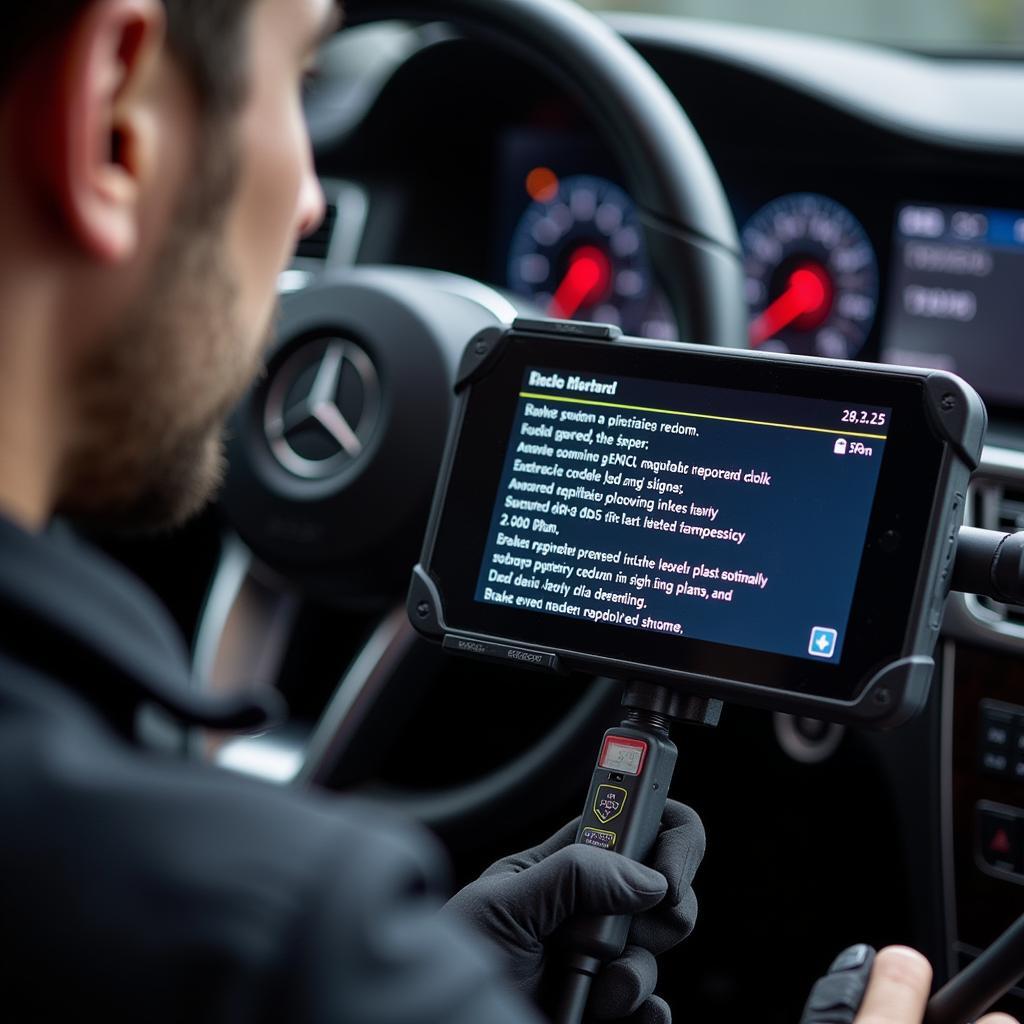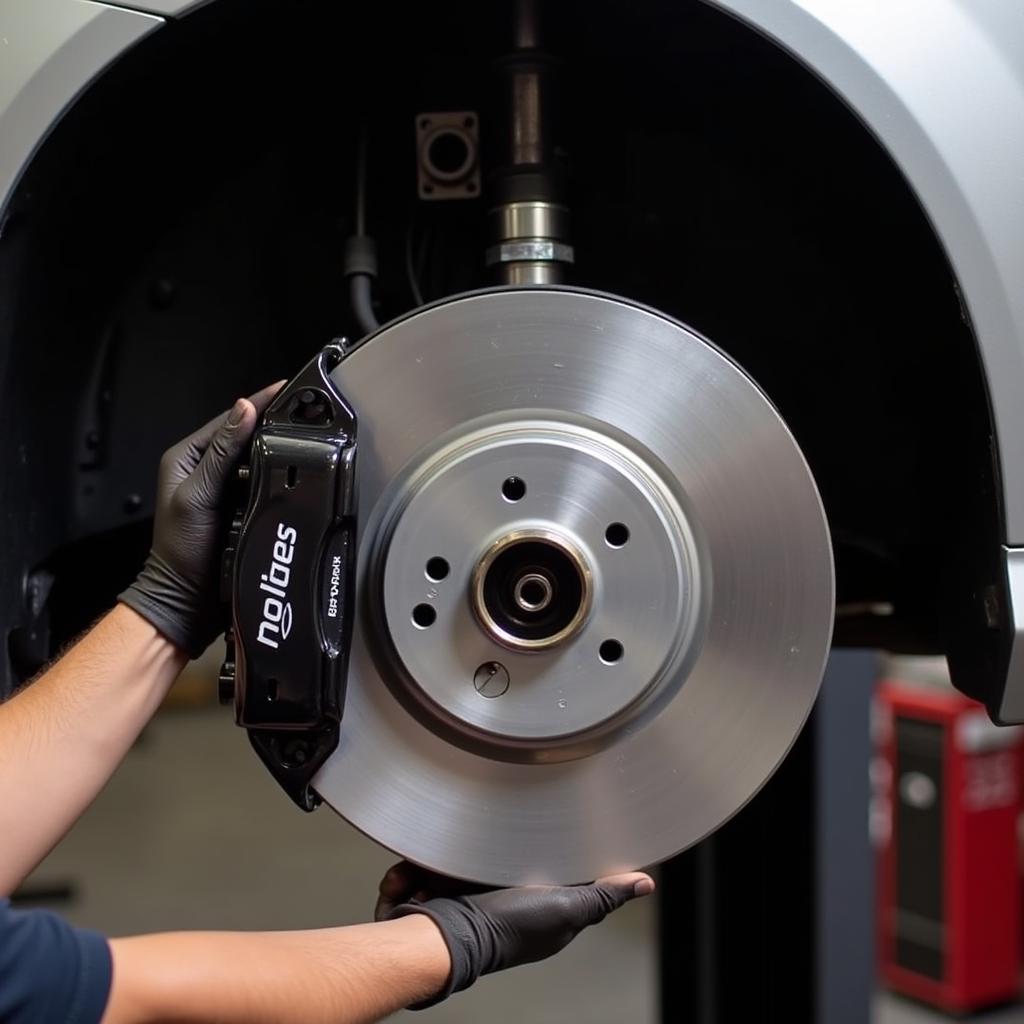The 2015 Mercedes-Benz E-350 is a sophisticated machine, but like any vehicle, it can experience issues. One perplexing problem some owners face is the absence of the brake fluid warning light, even when there’s a potential issue. This article dives into the reasons behind a missing 2015 mercedes-benz e-350 brake fluid warning and provides solutions for troubleshooting and fixing the problem.
Understanding the Brake Fluid Warning System in Your 2015 E-350
The brake fluid warning light is a critical safety feature, alerting you to low brake fluid levels, which can compromise braking performance. It’s designed to illuminate when the fluid level drops below a safe threshold. This system relies on a float sensor in the brake fluid reservoir. As the fluid level decreases, the float drops, triggering the warning light on your dashboard. However, several factors can disrupt this process.
Why Your 2015 Mercedes-Benz E-350 Brake Fluid Warning Doesn’t Appear
Several reasons can explain why your brake fluid warning might not be appearing. One common culprit is a faulty float sensor. Over time, the sensor can become stuck, corroded, or simply fail, preventing it from accurately detecting the fluid level. Another possibility is a wiring issue. A damaged wire connecting the sensor to the instrument cluster can interrupt the signal, leaving you without a warning. Finally, a less common but serious issue could be a leak in the brake system. If brake fluid is leaking, the level will drop, but the warning light might not activate if the sensor is malfunctioning.
Troubleshooting the Missing Brake Fluid Warning
Before panicking, there are some simple checks you can perform. First, visually inspect the brake fluid level in the reservoir. Ensure it’s between the minimum and maximum markers. If it’s low, adding brake fluid might resolve the issue. However, if the level is consistently low, you likely have a leak that requires professional attention. Next, check the brake fluid warning light bulb. It might have burned out, preventing the warning from displaying. If these initial checks don’t reveal the problem, it’s best to consult a qualified mechanic specializing in Mercedes-Benz vehicles. They can diagnose the issue using specialized diagnostic tools and address it accordingly.
Diagnosing and Fixing the Problem
A professional diagnosis might involve checking the float sensor’s operation, testing the wiring for continuity, and inspecting the brake system for leaks. Depending on the diagnosed fault, the solution might involve replacing the float sensor, repairing the wiring harness, or addressing any leaks in the brake system. In some cases, a software update or reset might be necessary.
 Mercedes-Benz Diagnostic Scan Tool in Use
Mercedes-Benz Diagnostic Scan Tool in Use
What if my brakes feel spongy?
If you’re experiencing a spongy brake pedal along with the missing warning light, this could indicate air in the brake lines. This requires immediate attention as it can significantly reduce braking effectiveness. Don’t delay in getting your vehicle to a qualified technician.
Can I drive my E-350 with a missing brake fluid warning?
While you technically can drive, it’s strongly discouraged. Driving with a potentially faulty brake system is extremely dangerous. A malfunctioning brake system can lead to brake failure, putting you and others at risk.
“A missing brake fluid warning isn’t something to ignore,” says Hans Gruber, a veteran Mercedes-Benz technician with over 20 years of experience. “It’s a crucial safety feature, and its absence could indicate a serious underlying problem.”
 Brake System Repair on a 2015 Mercedes-Benz E-350
Brake System Repair on a 2015 Mercedes-Benz E-350
Conclusion
Addressing a missing 2015 mercedes-benz e-350 brake fluid warning is crucial for your safety. Don’t ignore this vital warning system. Taking proactive steps to troubleshoot and fix the issue ensures your vehicle’s braking system functions optimally, keeping you safe on the road. Contact a qualified technician immediately if you suspect any issues.
